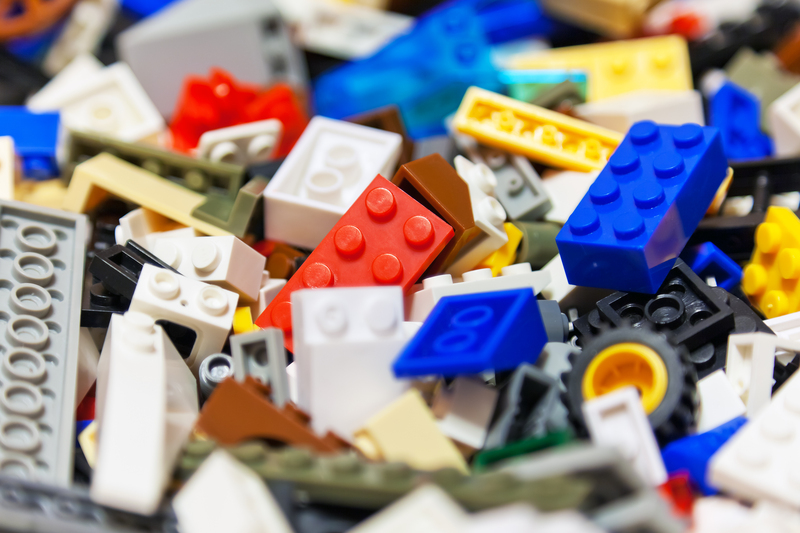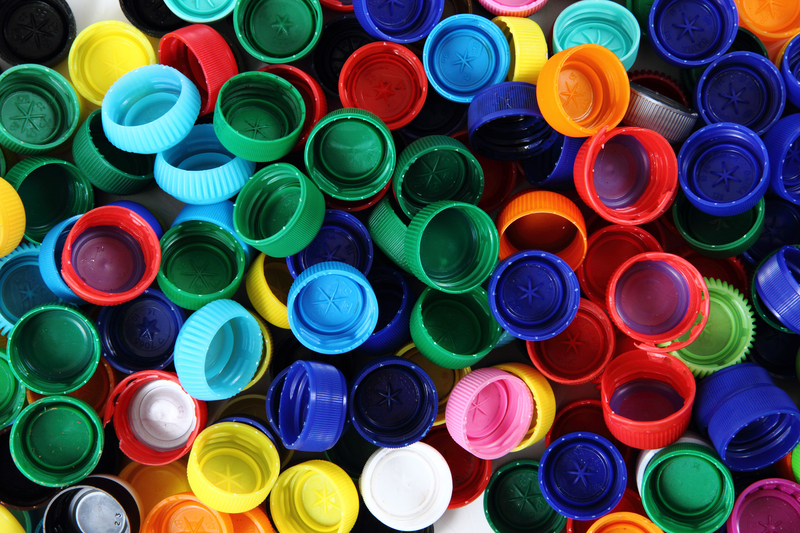Liberation from Mess: Insights into Clutter Removal
Clutter can feel like an insurmountable obstacle, leaving us stressed, anxious, and stuck in our daily lives. However, the process of decluttering isn't just about creating physical space--it's about freeing your mind and transforming your lifestyle. In this comprehensive guide, we delve into the liberation from mess, offering expert insights, practical steps, and motivational tips to help you embrace clutter removal and reclaim harmony in your living and working environments.
What Is Clutter and Why Does It Accumulate?
Clutter typically refers to disorganized or unnecessary items that hinder efficiency and negatively impact an individual's mental well-being. You might find clutter in your home, at your office, inside your car, or even on your digital devices.
- Emotional Attachment: Many people hold onto objects for sentimental reasons, fearing regret if they let go.
- Procrastination: Setting aside organization for "another day" often leads to overwhelming messes over time.
- Lack of Storage Solutions: Without designated places for belongings, items are more likely to collect and become clutter.
- Poor Habits: Not returning things to their homes or accumulating duplicates can rapidly turn neat spaces into chaotic ones.
Understanding the roots of clutter accumulation is the first step towards effective clutter removal and achieving true liberation from mess.

Why Does Liberation from Mess Matter?
The journey towards a clutter-free life is about far more than mere aesthetics. Removing clutter and organizing your environment have notable benefits:
- Enhanced Productivity: A clear space leads to a clear mind, increasing focus and output.
- Improved Mental Health: Studies link clutter to anxiety, depression, and elevated stress levels.
- Financial Savings: By recognizing your belongings, you avoid unnecessary purchases and eliminate costly repeat buys.
- Healthier Environment: Mess-free homes are easier to clean, reducing dust, mold, and allergens.
- More Time: Less time spent searching for lost items and cleaning up messes.
Keep in mind, liberation from clutter is a journey, not a sprint. Each step brings you closer to a more peaceful and efficient lifestyle.
The Psychology Behind Mess and Clutter Accumulation
There's a significant psychological component to messiness. Clutter can be a reflection of unresolved emotions or life transitions--such as loss, moving, or changes in work or family status.
- Attachment and Identity: Possessions often carry memories and identity, making it tough to discard them even when they're no longer useful.
- Overwhelm and Avoidance: Encountering an overwhelming mess, people may freeze and avoid taking action, exacerbating the situation.
- Decision Fatigue: Deciding what to keep and what to toss requires energy, leading to hesitation and indecision.
By recognizing these psychological barriers, individuals can tackle clutter removal strategies with empathy towards themselves, breaking the cycle of mess accumulation.
Key Approaches to Clutter Removal
1. The Four-Box Method
- Keep: Items that you use regularly and love.
- Donate/Sell: Good-quality items you no longer need.
- Store: Seasonal or infrequently used belongings.
- Trash: Broken, outdated, or unusable items.
Set up four boxes in each room you plan to declutter and sort items systematically. This approach forces decisions and ensures a thorough organizational process.
2. The "One-In, One-Out" Rule
Every time you acquire something new, commit to removing an old or unused item. This powerful rule helps prevent future clutter and encourages mindful consumption.
3. Declutter by Category--not Location
Popularized by Marie Kondo's KonMari Method, this strategy involves tackling similar items across your entire home (e.g., all books, then all clothes, followed by paperwork), rather than going room by room. It's a comprehensive way to gain an accurate overview of your possessions.
4. Time-Blocking and the 15-Minute Rule
Clutter removal can be daunting, but breaking the process into timed intervals--such as 15-minute bursts--makes it manageable and less overwhelming.
Step-by-Step Guide to Achieving Liberation from Clutter
Step 1: Reflection and Goal Setting
Begin your journey by identifying your decluttering goals. Visualize the mess-free spaces you want to achieve and consider why it matters to you. Write these motivations down; they will sustain you when motivation wanes.
Step 2: Inventory and Prioritize
- Survey each room or category, taking note of major clutter trouble spots.
- List areas or types of items (clothes, books, memorabilia) that cause you the most stress.
- Rank these by importance or the severity of the mess.
Step 3: Start Small
Avoid trying to tackle the entire house at once. Start decluttering a single drawer, desk, or box. Experience the satisfaction of progress, which fuels further momentum.
Step 4: Sort and Decide
Use one of the key methods above, such as the Four-Box Method. Hold each item, ask yourself if it serves a purpose or brings joy, and sort decisively.
Step 5: Dispose, Donate, or Sell Responsibly
- Recycle or safely dispose of hazardous or broken items.
- Donate gently used articles to local charities for community impact.
- Consider online selling platforms for valuable but unused belongings.
Step 6: Organize Remaining Items
Neatness after decluttering is crucial to maintain liberation from mess. Invest in sensible storage solutions--think labeled bins, drawer dividers, shelves, and racks.
Step 7: Maintenance
- Regularly reassess your possessions to keep clutter at bay.
- Schedule annual or seasonal check-ins for clutter-prone areas.
- Practice gratitude and mindfulness to buffer against emotional accumulation of new messes.
Decluttering Digital Spaces: Modern Mess Liberation
Physical spaces aren't the only zones prone to clutter accumulation. Our digital lives--emails, files, photos, and apps--can quickly become overwhelming, silently sapping productivity and peace.
Practical Digital Decluttering Tips:
- Delete or archive emails in batches; unsubscribe from unwanted newsletters.
- Sort files into clearly-labeled folders and back up important documents.
- Remove unused apps from your devices to free up storage and simplify navigation.
Liberation from digital mess is just as transformative as tackling physical spaces!
Overcoming Barriers to Clutter Removal
Procrastination & Emotional Resistance
- Set a decluttering schedule; find an accountability partner or join an online support group.
- Remind yourself of your initial goals and the benefits of mess liberation.
Sentimental Items: The Toughest Test
- Take photos to preserve memories without keeping every physical item.
- Limit keepsakes to one box or a dedicated shelf.
Lack of Time
- Incorporate decluttering into your regular routine, such as dedicating a few minutes during nightly tidying up.
- Enlist family or friends for support, making the process collaborative and fun.
Benefits of a Clutter-Free Life
- Mental Clarity: Enjoy sharper focus and creative thinking.
- Wellbeing: Experience a greater sense of calm, confidence, and happiness in your spaces.
- Time for What Matters: Free up your schedule for hobbies, relationships, and self-care.
- Enhanced Hospitality: Feel at ease inviting friends and family into your clean, welcoming home.
Expert Insights: What the Decluttering Pros Say
"Clutter is not just the stuff on your floor - it's anything that stands between you and the life you want to be living."
- Peter Walsh, Organization Expert
"For every minute spent organizing, an hour is earned."
- Benjamin Franklin
Professional Clutter Removal Services
Sometimes, the best route to liberation from mess is to consult professionals. Professional organizers assess your spaces, habits, and hurdles, offering custom solutions and practical support--especially for extreme clutter or hoarding scenarios.
- Receive objective advice and compassionate guidance.
- Speed up the decluttering process with expert help.
- Adopt sustainable solutions tailored to your lifestyle.

Clutter-Free Living: Cultivating Sustainable Habits
- Mindful Consumption: Think before you purchase; ask if you truly need an item and where it will live in your space.
- Regular Purges: Designate time monthly or seasonally to review and clear out unnecessary possessions.
- Organizational Systems: Implement storage solutions that are intuitive and easy to maintain.
- Gratitude Practice: Focus on valuing what you own, rather than accumulating more "just in case."
Liberation from clutter is an ongoing commitment, but the rewards--mental freedom, physical health, aesthetic pleasure, and better relationships--make every effort worthwhile.
Conclusion: Embrace the Transformation
Your journey toward clutter removal and mess liberation is a transformative process--one that goes beyond a tidy shelf or a clean floor. By recognizing the value of space, understanding underlying emotional ties to possessions, and implementing simple, practical routines, you can experience the deep joy and liberation of a mess-free life.
Take the first step today. Free your space, liberate your mind, and unlock the potential that comes from letting go of the unnecessary. Transformation awaits--one item, one shelf, one room at a time. Liberation from mess is not just possible; it's entirely within your reach.